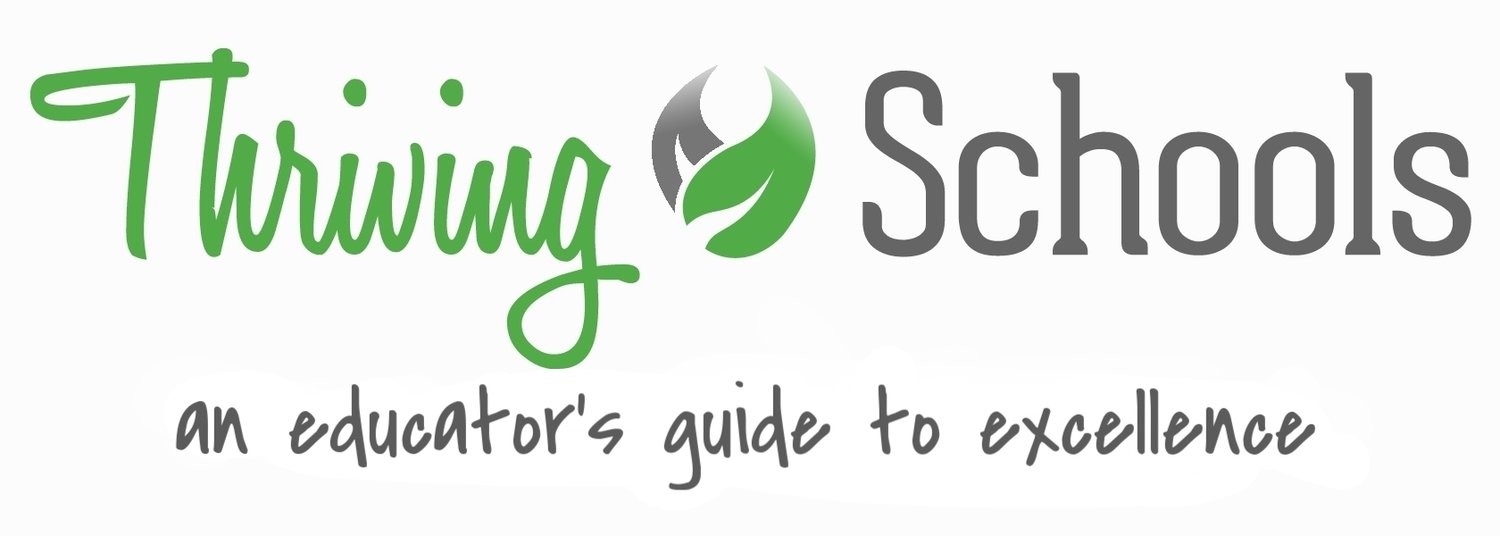Paul Dean: The key to strong development
/We recently spoke with Paul Dean about how to develop strong instructional coaches. Paul is the Co-Founder and Executive Director of Jounce Partners, an organization that trains current and future school leaders for a reimagined principal role that emphasizes teacher development. The ideas that follow are a few of the insights Paul had to offer on developing excellent instructional coaches.
Thriving Schools: What’s the biggest mistake that you see in how school leaders are coaching and developing their teachers?
Paul: Frequency. The amount of feedback and coaching teachers are receiving is way too low. If making teachers better is the absolute greatest lever in impacting student performance, then we should be striving to do it every day. We don’t give students feedback once a month or once a semester, so why should feedback for teachers be any different? Further, by examining the best-performing schools around the country, we clearly see that they share an emphasis on strong teacher development.
Thriving Schools: What other shortcomings do you frequently see?
Paul: Few schools are transforming observation and feedback into modeling and practice. The reason this is important is because observation and feedback are passive in nature – a teacher can receive this information and not integrate any of it into their practice. Modeling and real-time practice are active processes and are more likely to create stronger habits. I’d also add that it’s essential for school leaders to have a clear vision for what they want every classroom to look like. If you don’t have a vision for academic excellence, you can’t begin to coach your teachers on it.
Thriving Schools: Let’s revisit your point about frequency. How much of a school leader’s day should be spent developing their teachers?
Paul: 80%! School leaders should be spending 80% of their time making teachers better. While I recognize this represents a dramatic change for most, I often see school leaders spending less than 10% of their time in this area.
Thriving Schools: Wow - now that's vision! What are the most significant activities a school leader needs to eliminate in order to achieve that?
Paul: That’s a difficult question because there isn’t much uniformity in how school leaders spend their time. What I see is that administrators tend to gravitate to activities that they feel most comfortable with. For instance, if an assistant principal feels most comfortable with building morale and staff relationships that tends to be where they will spend their time. So I figure if I can get school leaders to feel comfortable with and effective at coaching, they’ll spend more time there. One more point I’d make is you need to find ways to turn other responsibilities into coaching touchpoints. For instance, if you have to do lunch duty, indicate to a teacher or two that you’re going to model how to give observable directions and that you’ll be following-up with corrections.
Thriving Schools: From your experience, can any school leader become a good coach or are there certain mindsets or experiences an individual needs to have?
Paul: I find that school leaders who themselves were strong instructors or had excellent content expertise tend to do the best. Why? Imagine you’re visiting both a 2nd grade math class and a 7th grade literacy class back to back. How deep your content knowledge is about what a teacher is trying to accomplish will either limit or improve your ability to provide relevant coaching at the right time.
Thriving Schools: What resources or books would you recommend to someone wanting to improve the coaching they provide to their teachers?
Paul: Let me give you a few.
The next two are for building content knowledge into bite-sized skills:
2) Great Habits, Great Readers
4) Finally, I would recommend gaining access to a teaching video library. For example, you may want to take a look at Mission 100%. Then what I do is watch a 30-second clip of teaching, get up in a classroom, and then re-teach it focusing on a skill or two I want to get better at. Then, do the same thing from the coach’s role. How would you coach that teacher? Ideally, you should do this process as a team!
Note: We also asked Paul about specific practices he uses when developing teachers and instructional coaches. Stay tuned – we’ll be posting that soon!

